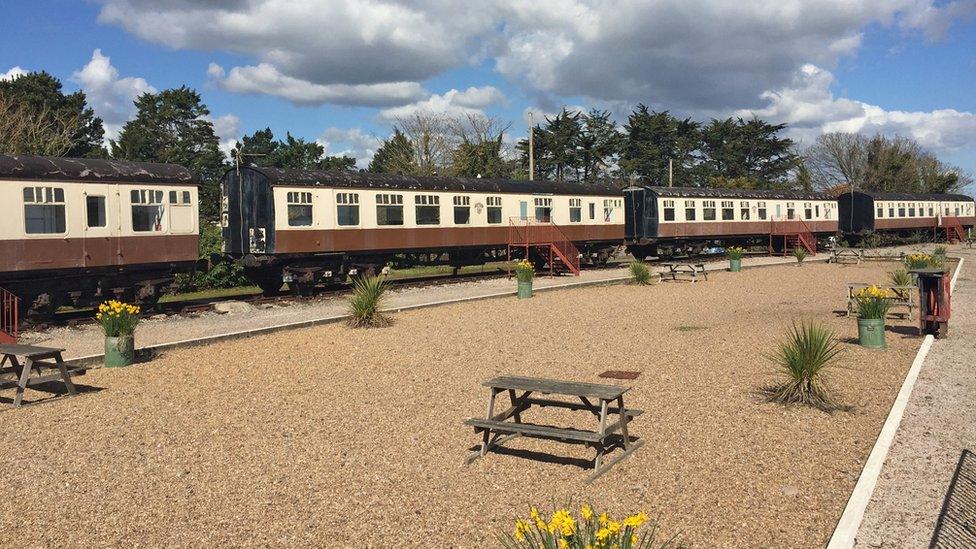The quirky holiday lets that are nothing like home
- Published
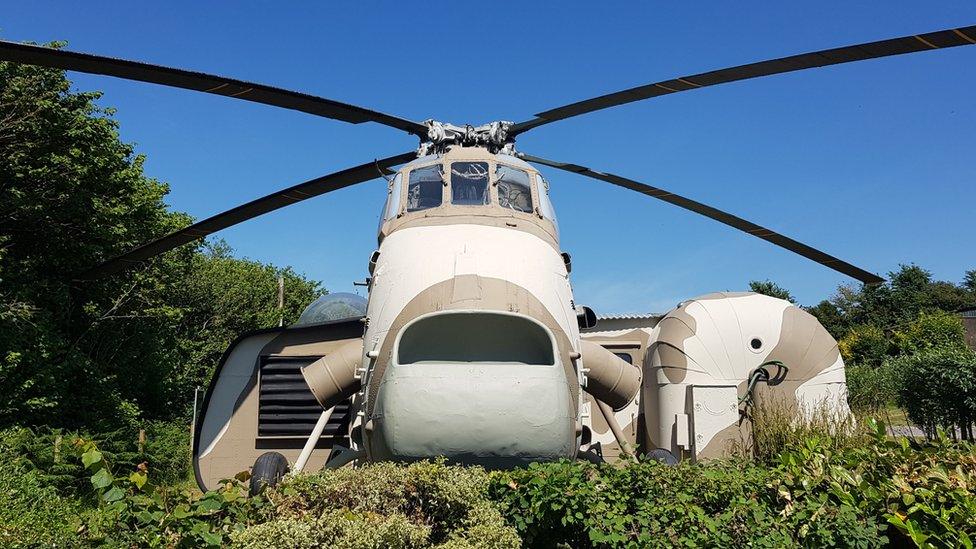
Galahad "popped up on eBay" in the early hours of the morning
In a barn on the Isle of Wight, a self-confessed eccentric is contemplating how to convert a submarine into a new feature for his rather unusual campsite.
It all began five years ago when Stewart Dungey spotted a former Falklands rescue helicopter on eBay.
Guests at his Windmill Campersite near Newport could already stay in a showman's wagon or a choice of shepherds' huts but Mr Dungey wanted to offer something different.
The Westland Wessex helicopter is one of a growing number of quirky holiday lets that are becoming increasingly popular staycation destinations.
"At 4 o'clock in the morning it popped up on eBay," said Mr Dungey. "My family were not keen at all."

Mikyla Dillon, pictured with Galahad in 2017, now works on Puma helicopters in the RAF
The Dungeys named the converted four-berth helicopter Galahad and guests have included former pilots and servicemen, including one who told Mr Dungey he had once "jumped out" of this particular aircraft - XT469.
The Dillon family from Hull are among a growing number of return guests who first visited in 2017 with their 10-year-old son, Jamie, and their 17-year-old daughter Mikyla, who now works on Puma helicopters in the RAF.
"It was going to be our last holiday before she signed up," explained Dave Dillon, her dad, who confesses he is also an aviation "geek".
This year was their third visit and they have already booked again for next year.
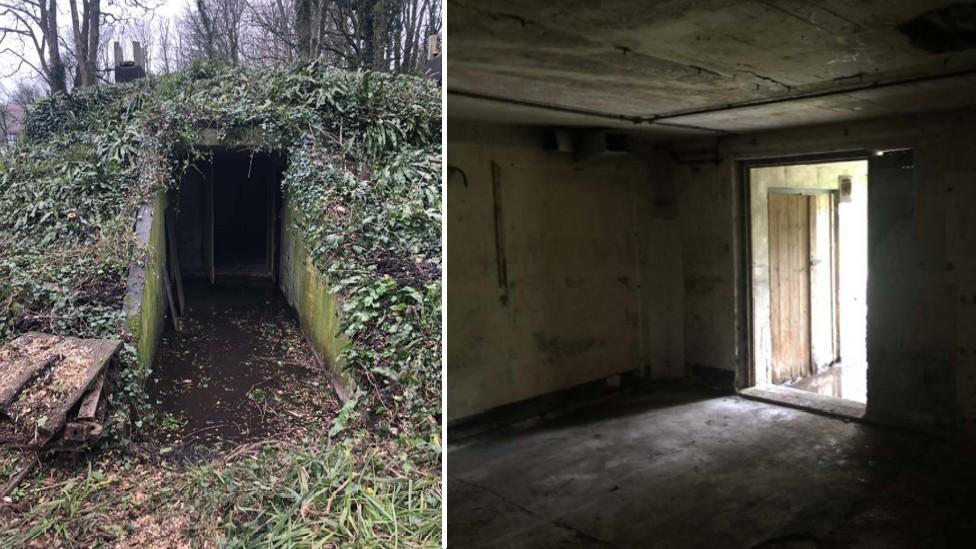
The windowless, concrete bunker will provide two-bedroom accommodation
On Dorset's Jurassic Coast, architect Jonny Plant is preparing to create a "bomb-blast" effect in the side of a windowless World War Two radar bunker as part of plans for a holiday let overlooking Ringstead Bay.
It once formed part of the Chain Home early-warning radar system and planning permission has recently been granted to turn it into two-bedroom accommodation.
"We really want to retain that sense of bunker, that you are part of history," explained Mr Plant, of London-based Lipton-Plant Architects.
"The biggest challenge was deciding how we were going to get light into it," said Mr Plant.
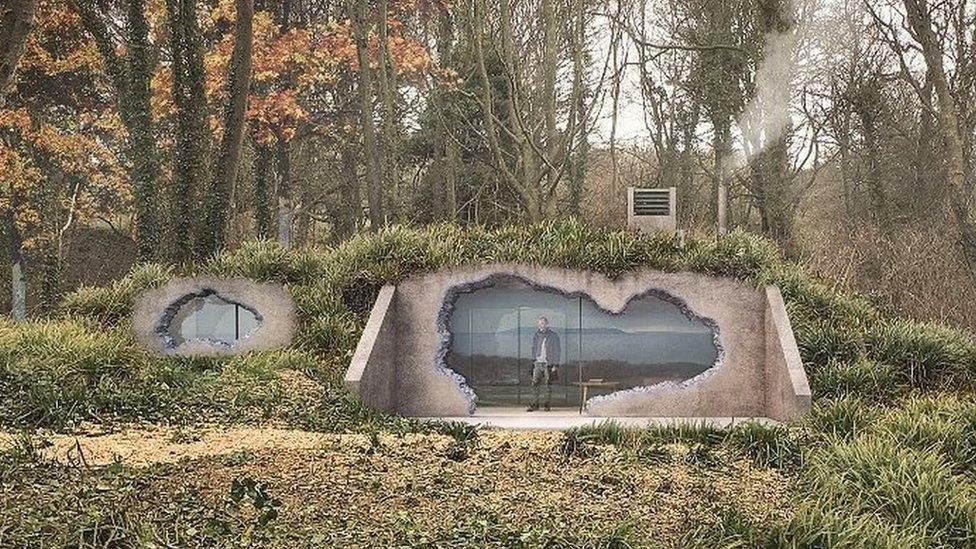
Architects want the bunker to have a "war-torn aesthetic"
"We came up with this idea of war-torn aesthetic, of bomb blasts.
"We wanted something raw, something you can touch and feel and see the concrete actually blasted away... then we glaze that opening."
The bunker, which is due to be completed next year, will retain its bare concrete walls, while cables and pipework will be carried through ducting.
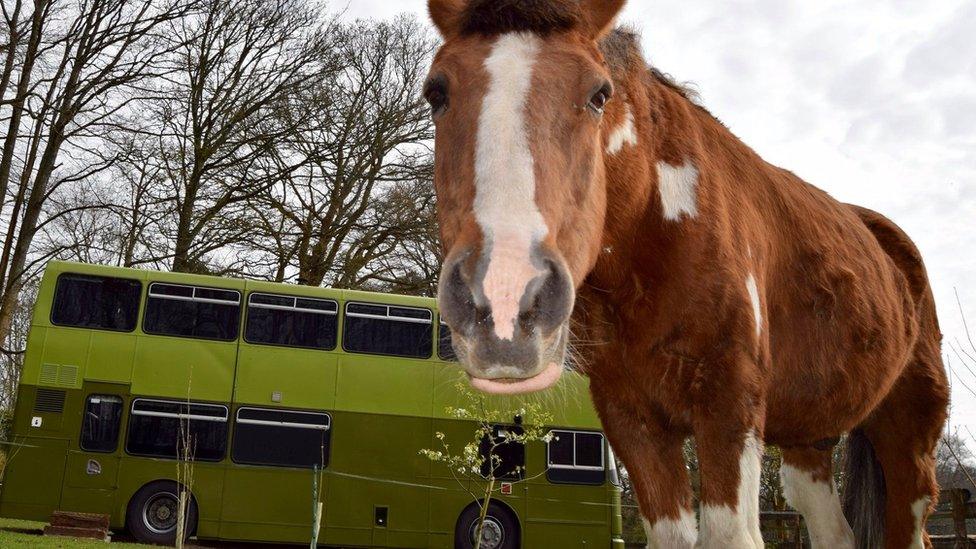
Olive Bus sits on a former horses' paddock in Bramshott, Hampshire
But if military history is not your thing, how about sitting at the wheel of a Dublin double-decker bus while doing your business?
The surprise location of the toilet is just one of the quirky ideas Bob Johnson came up with when he was reimagining Olive Bus - an eBay purchase made "one evening, after a few drinks".
The bus, which had most recently been used for school transport in Dartford, is now enjoying its retirement in a former horses' paddock in Bramshott, Hampshire, where Mr Johnson has spent three years refurbishing it.
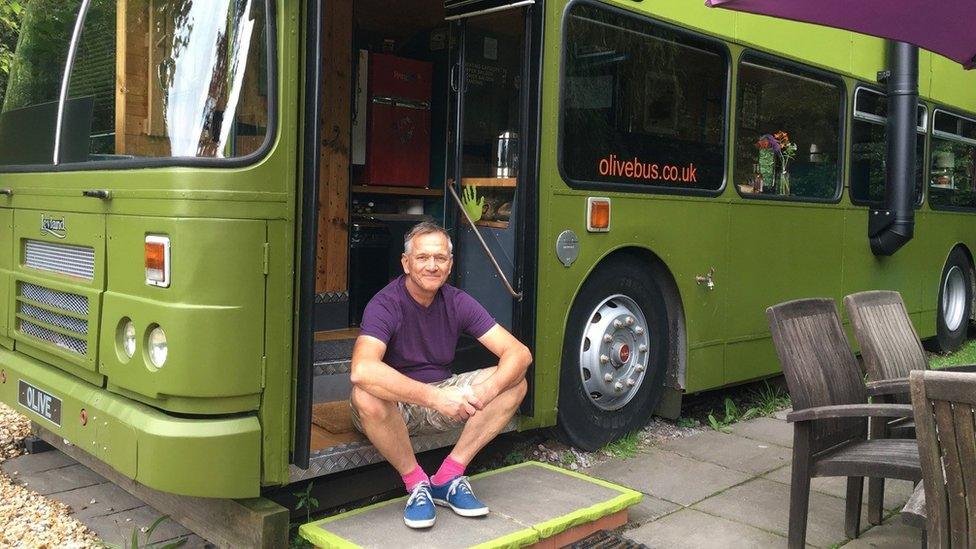
Bob Johnson spent days "pondering" while refurbishing Olive
"I did it all myself," he said. "It was about three years before I finished it because I was doing it in my spare time but, because I kept coming back to it, ideas kept coming.
"I spent days and days sitting in it, pondering."
The Cooper family, who stayed in Olive last month, described the driver's seat toilet as the "best feature", adding that the bus was more spacious and comfortable than some holiday flats.
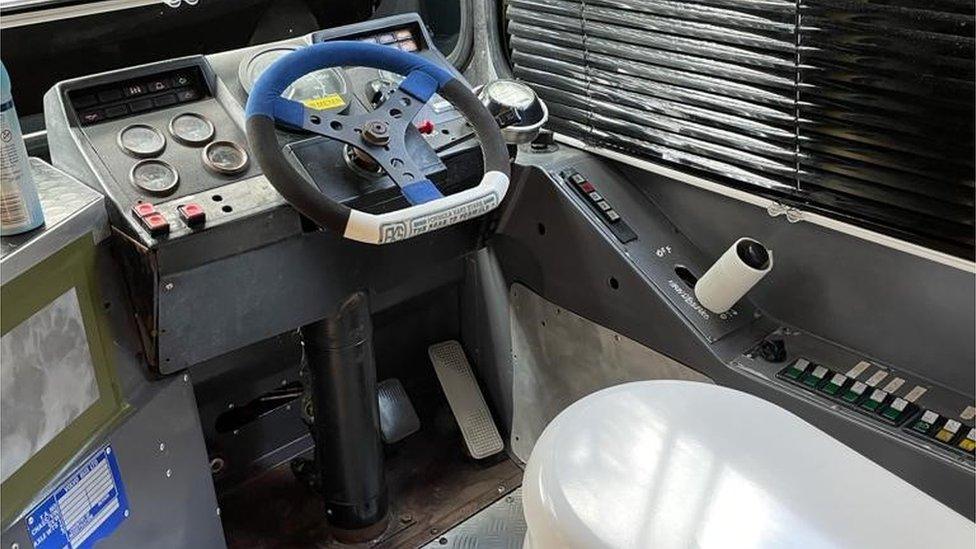
There is a surprise for guests in the driver's cab
Ann Cooper said: "We usually go to the US to visit family every summer but, in this year full of travel restrictions, we wanted a fun adventure."
In Cornwall, Lizzie Stroud and her husband, David, are busy refurbishing a railway carriage that was built for Queen Victoria.
It's one of nine train carriages they have bought over the years - five of which are already available to let.
It began in 1992 when, hunting for somewhere affordable to live, they bought and converted the station building at St Germans, near Plymouth, where they raised their family.
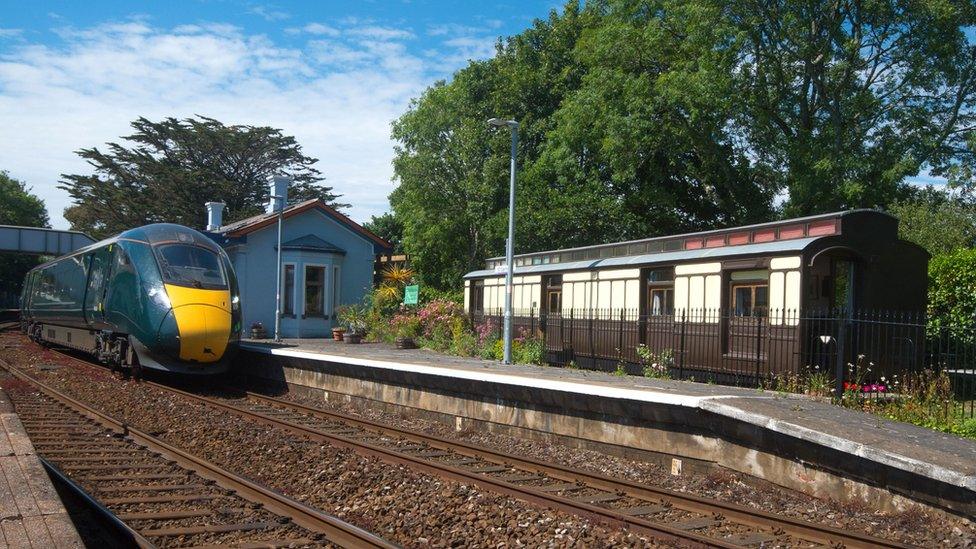
The Travelling Post Office carriage sits alongside the platform at St Germans
The first carriage had been intended as a "spare room" for visiting friends but, since then, doing up and renting out railway carriages has become a full-time, award-winning business.
"We paid £27 for two of the carriages on eBay," explained Mrs Stroud, "they were very rough but the costs are really in moving, restoring and doing up.
"When we got the Royal carriage, the site wasn't ready but we had to move it straight away so we found somewhere to store it for a year but that meant we had to move it twice and each move cost £4,500."
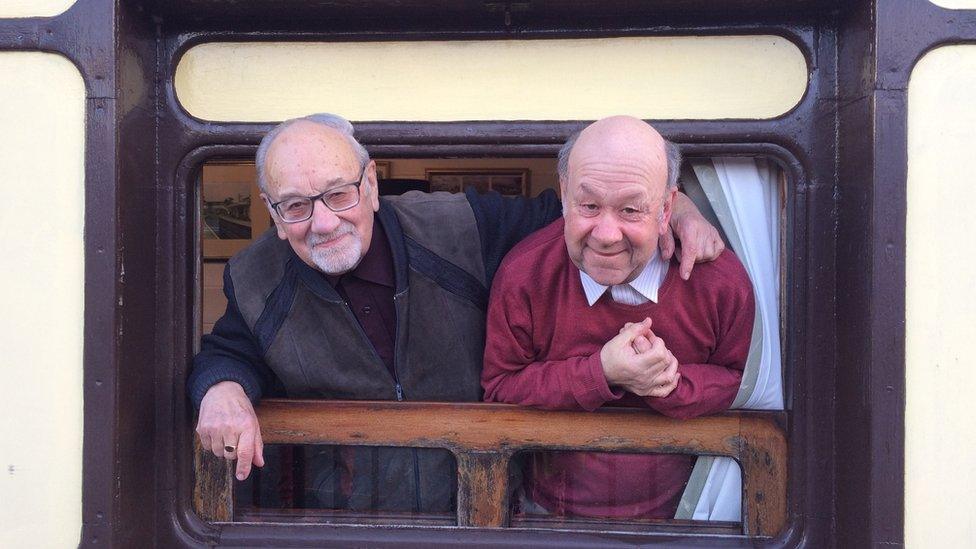
Father and son Stephen and John West are regular guests at St Germans
Mrs Stroud, previously a music teacher, and her husband, who gave up his job as an agricultural engineer, have done all the work themselves, including setting up a flower garden to provide year-round cut flowers for guests.
"I've learned gilding," said Mrs Stroud. "Dave does the engineering side and woodwork.
"I've painted stained-glass panels, I've learned needlework for making curtains, gardening."
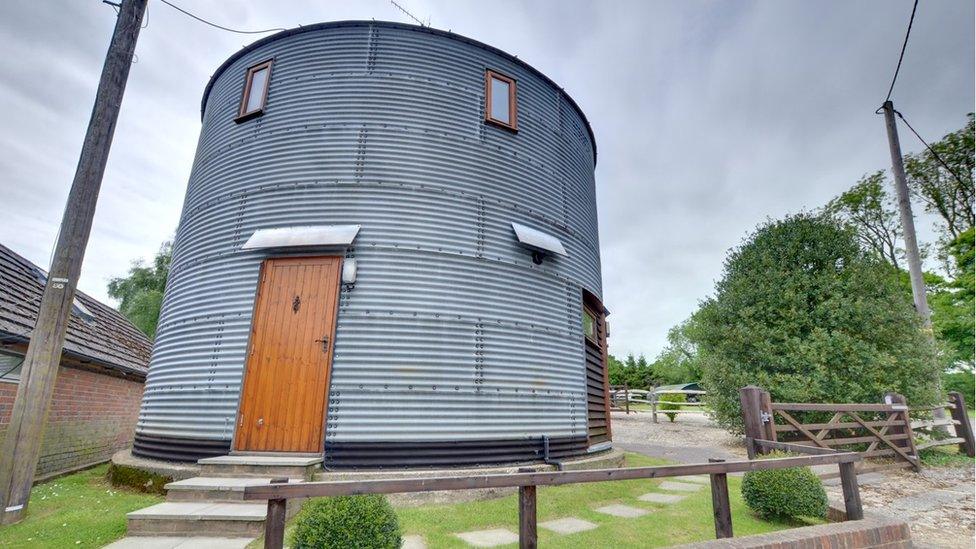
The Corn Bin is located on a functioning airfield near Battle
There are many more quirky and bizarre holiday homes - a grain silo on an airfield in Sedlescombe, Sussex, a control tower and airliner at a former RAF coastal bombing range overlooking The Wash in Lincolnshire, flour mills, sea forts, a fire truck, caves and even a "space ship".
And with so much uncertainty surrounding foreign travel, they offer some much-needed escapism despite being just a car or train ride away.
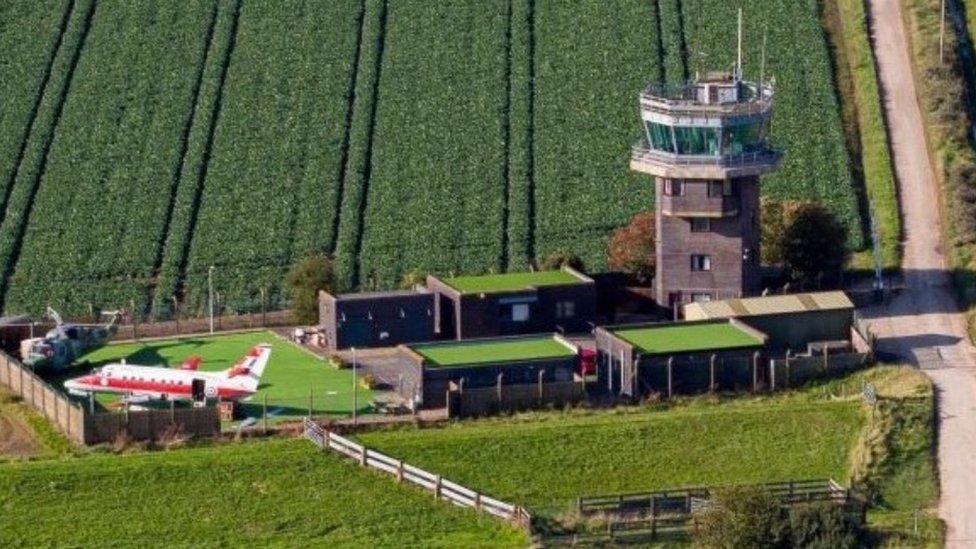
Guests at RAF Wainfleet can stay in the control tower, a Lynx helicopter or a Jetstream airliner
Back on the Isle of Wight, Mr Dungey and his son Rhys continue working on new features for their campsite, which already include a "Turdis" toilet in a phone box and a laundrette in a Reliant Robin three-wheeled car.
But the pair remain tight-lipped about their latest project involving a submarine with a famous past.
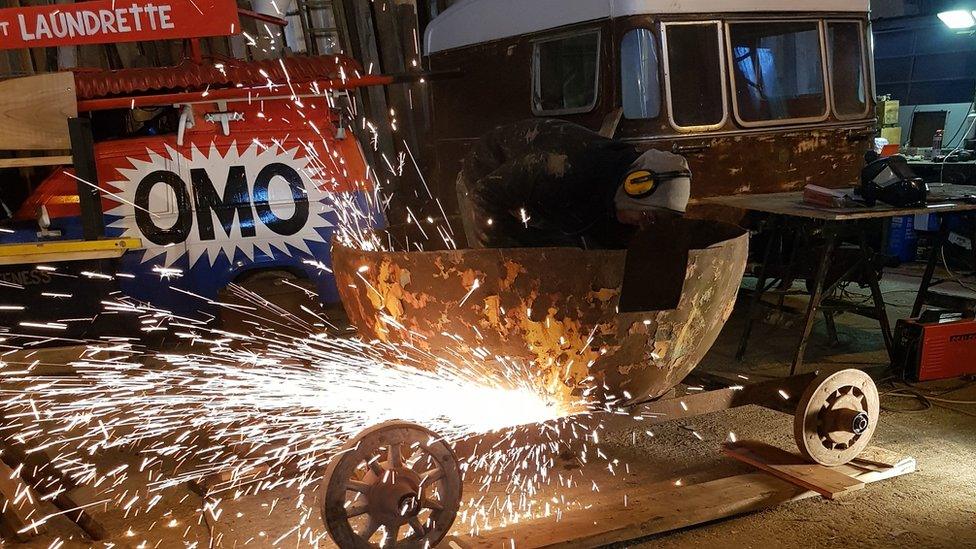
Rhys and Stewart Dungey's latest project involves a James Bond film prop
"I wanted a U-boat," said Mr Dungey, "but when you look at the size of U-boats, they are huge. This one's not exactly small.
"We were going to build one but this one's got history, it's from a film.
"Let's just say it's got a double-O in the title."

Follow BBC South on Facebook, external, Twitter, external, or Instagram, external. Send your story ideas to south.newsonline@bbc.co.uk, external.
- Published22 July 2021
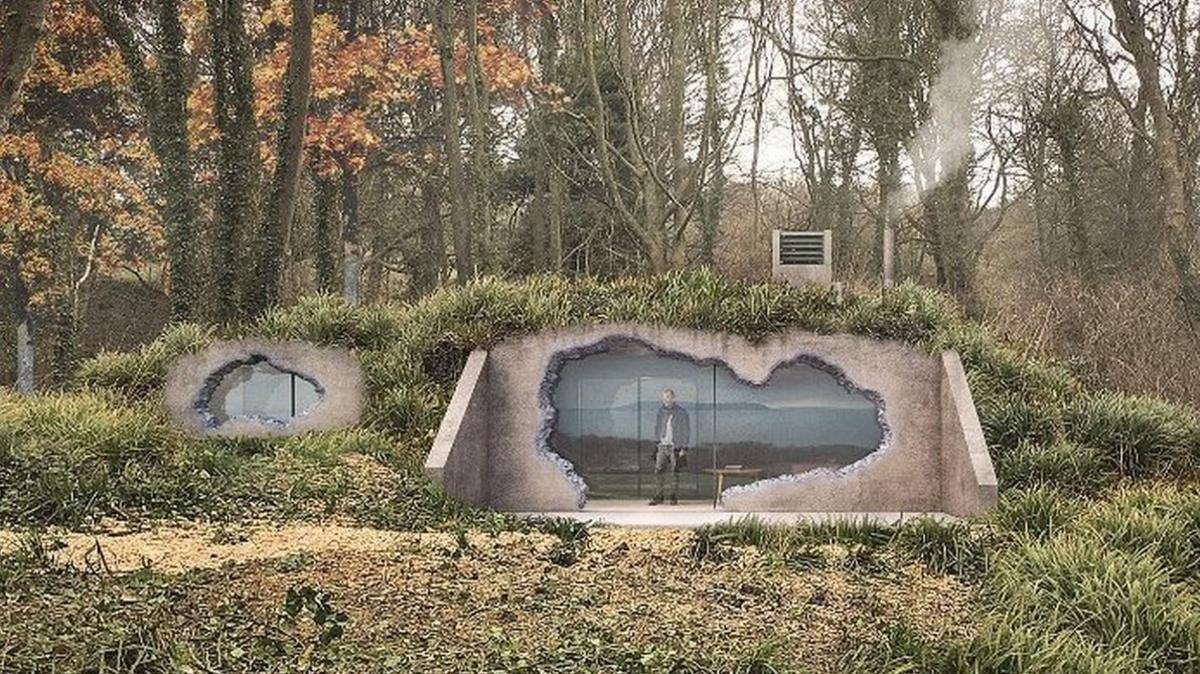
- Published30 May 2018

- Published3 November 2016
